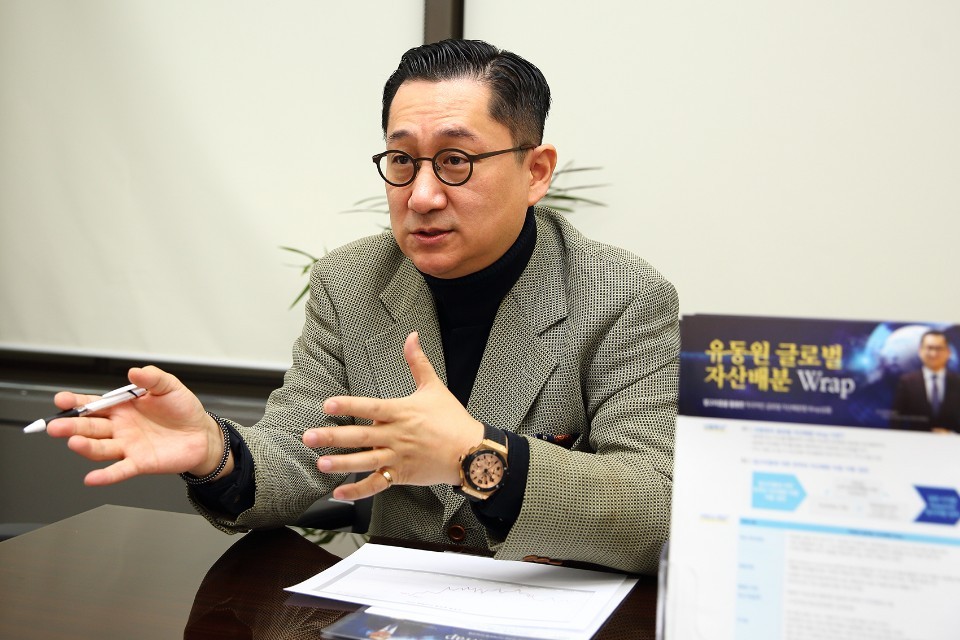 |
Yuanta Securities Korea global strategist Daniel Yoo (Yuanta Securities Korea) |
South Korea’s stock market has seen a surge in capital outflow by foreign investors due to the novel coronavirus fallout, but that can be reversed, according to a top expert.
In order to bring foreigners back to this undervalued market, it is crucial that locally listed firms exert all efforts to fundamentally change their corporate governance to expand shareholders’ rights, according to Daniel Yoo, head of global investment at Yuanta Securities Korea, in a recent interview with The Korea Herald.
“To attract foreign capital back to the local market, listed firms need to allow shareholders to exercise their rights more,” he said.
Foreign stock ownership on the benchmark Kospi bourse reached the highest level in January, at 38.9 percent -- the highest level since Aug. 8, 2006, at 38.91 percent.
“Some may blame that the undervalued market is due to the lingering tensions with North Korea, but it’s most likely due to the existing corporate governance problem.”
Some owners of local firms possess a small portion of shares but take back huge earnings, even when stock prices have bottomed out. Unless they exercise better shareholder-friendly schemes, foreign investors will continue to shun local markets for their excessive volatility and unattractiveness, he said.
“Samsung Electronics was one of the worst listed firms in the past, by not giving dividends to their shareholders. But since the company started paying dividends as much as rival companies do and is paying closer attention to shareholder value, foreigners began flocking to the No. 1 chipmaker. It further stimulated the local market.”
Foreign investors on Friday scooped up major large-cap stocks amid hopes that the global COVID-19 outbreak is peaking. Yoo analyzed that foreigners turned to net buyers as they reassessed the market’s fundamentals and supply and demand.
“Not just fundamentals, but liquidity is also important. People have worried over the nation’s major industries such as semiconductors and automobiles. However, Korea has a solid foundation for manufacturing. In a volatile market, foreigners prefer investing in a democratic country with production competitiveness.”
Yoo said the country’s automobile industry will boost its competitiveness by 2025, particularly in the electric car market. At the same time, he predicted that the main bourse will recover to the 2,000-point level this year.
When the Kospi index plummeted below 1,500 in March, the valuation was extremely underestimated.
While most overseas investment banks and institutions forecast the country’s first-quarter gross domestic product growth to fall to nearly minus 1 percent amid the economic fallout from the virus outbreak, the Bank of Korea will disclose its data Thursday.
If the upcoming release is worse than previous predictions, the local stock indexes may plunge again, contracting investor sentiment. Market watchers and local investors are also eyeing whether foreigners who turned to net buyers on Friday will continue purchasing local shares.
“Due to pessimism, regarding the country’s export prices drop and a negative GDP growth forecast, the market’s valuation has already bottomed out. Since it’s already baked into the market, foreigners won’t be surprised. They won’t further dump their local shares just by checking the negative figures,” he said.
By Jie Ye-eun (
yeeun@heraldcorp.com)








